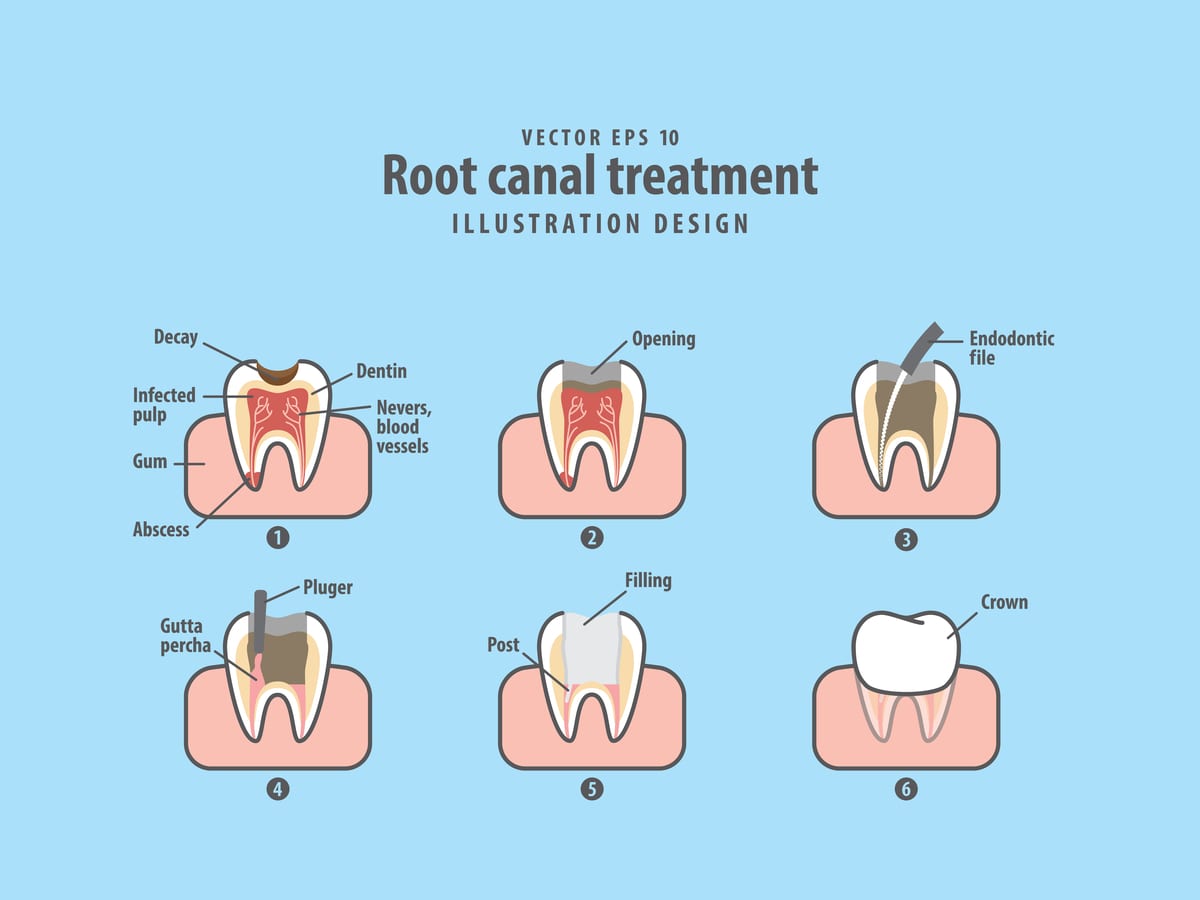In cases where infection or decay has advanced sufficiently, the only method available for saving a tooth may be a root canal. Root canals bear a poor reputation among the general dentistry patient public, but it is largely undeserved. Modern root canals are nearly painless and are an effective way of preserving teeth that otherwise would have to be extracted. Patients at Somerset Dental often have questions concerning the procedure when the subject is broached by their dentist. Below we’ve compiled a short guide to help our patients know what to expect.
What Is A Root Canal?
Let’s start by explaining what a root canal actually is. Root canals are a form of endodontic treatment, being an area of dental care that is focused on the interior of the tooth. A tooth is comprised of layers, the most familiar of which is the enamel layer. Within this layer is the porous and sensitive dentin that surrounds the pulp inside. The pulp is a living gelatinous mass of nerves, blood vessels, and connective tissue that is the living heart of your tooth. While the pulp is essential to the tooth’s development, an adult tooth can survive removal. Root canals are a treatment in which infected pulp is removed and the tooth filled and sealed against further decay.

How Would I Know If I Require Root Canal Treatment?
If the pulp has become infected or inflamed, you may be in need of a root canal. Extensive or deep decay of a tooth can result in the pulp becoming infected, as can cracks or fractures in the dentin and enamel. Even if the exterior of a tooth is in good shape, pulp damage may occur as the result of an injury. Abscesses and painful inflammation from infection can occur if left untreated. Some symptoms that may tell you you’re in need of a root canal are pimples on the gums, pain while biting or chewing, sensitivity to cold or heat, tender or swollen gums, and darkening gums.
How Do Root Canals Save My Tooth?
This endodontic procedure removes the pulp that has become inflamed or infected. Once this is done, the interior of the tooth is carefully cleaned and shaped and filled with a composite material. The tooth is then sealed, and your dentist will fit it with a crown or another suitable restoration to help the tooth return to full function. Once this process is completed, the tooth will act like any other natural tooth in your mouth.
Is Root Canal Treatment Painful?
This is one of the most stated concerns of patients who have been informed they need a root canal. Contrary to their reputation, root canal treatments are not a source of pain. Instead, they are often the single most effective way to eliminate pain associated with pulp infection and abscesses. Following the treatment, your tooth may feel a little sensitive, but it is typically mild enough to be controlled with over-the-counter medications. In rare cases, prescription medication may be required. It may feel odd for a period of time following the treatment, but if it is severely painful for more than a few days contact our office immediately.
Will I Need To Care For The Repaired Tooth Differently?
Root canal therapy is a two-step process, the first typically being performed by an endodontist. Once the tooth has been cleaned and filled, you will need to see your dentist to have a crown applied. Until this has happened, you will need to avoid biting on or chewing with the affected tooth as it is not fully restored yet. Once the crown is in place, you can treat it as any other tooth, practicing your normal daily oral hygiene routine without alteration.
Contact your dentist to find out if Root Canal Therapy is right for your oral health needs. Call today for an appointment.


